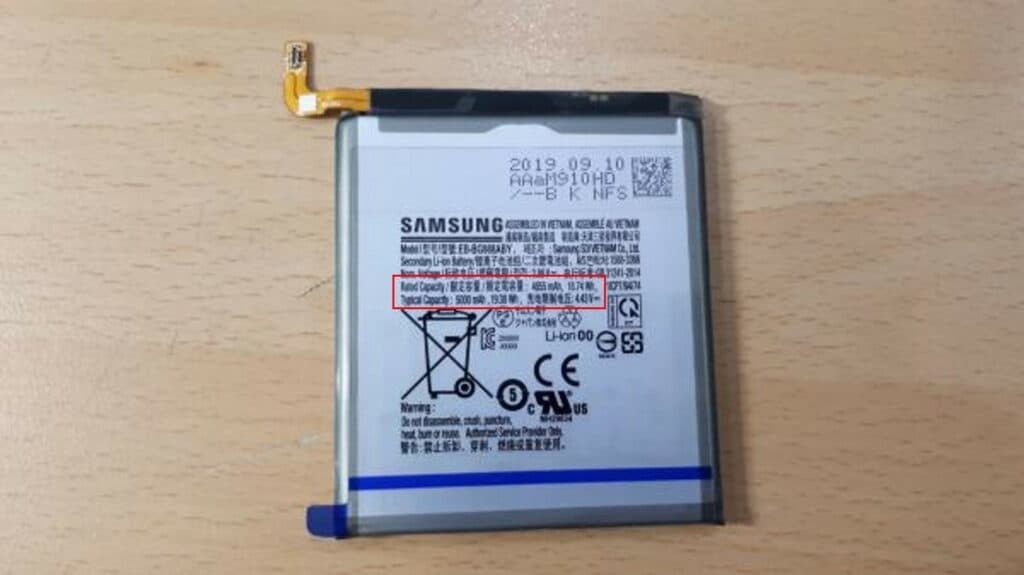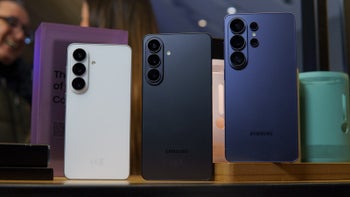Samsung to use 5000mAh LG batteries in the Galaxy S11+ for the first time

The regular S11 is said to boast the Note 10+ battery of 4300mAh or the Galaxy A71's 4500mAh unit, depending on whose rumors you choose to believe. In both cases, that's way above the 3400mAh in the S10 model. As for the Galaxy S11+, today Korean media reiterates that it may pack a battery close to the 5000mAh mark, like the Galaxy M30.
| Galaxy S10 series | Galaxy S11 series (expected) |
|---|---|
| 3100mAh (Galaxy S10e) | 3730mAh (Galaxy S11e) |
| 3400mAh (Galaxy S10) | 4300-4500mAh (Galaxy S11) |
| 4100mAh (S10+) 4300mAh (Note 10+) 4500mAh (S10+ 5G, Galaxy A71) | 5000mAh (Galaxy S11+) |
That huge 5000mAh or so battery pack will be supplied by LG, it turns out, in addition to whatever Samsung's own SDI subsidiary can muster. "LG Chem currently mass produces the cells for the up-and-coming Galaxy phones from its Nanjing plant in China," tipped industry sources.

Purported Galaxy S11 Plus battery shows 5100mAh typical capacity
That's explicable, given that LG Chem is the world's largest lithium-ion battery producer by capacity, but also marks the first time that LG batteries will be used in the Galaxy S-line. Samsung is obviously content with the job that LG did with the batteries of the Note 10 series, and has tasked it with the initial S11 series supplies, too.
We already told you how Samsung has arrived to this drastic bump in capacities - by using a custom PMP packaging method for the cells that reduces the size of the wrapping significantly, and allows for either smaller packs with the same capacity, or way more juice content in the same battery size that is in the S10 series.
The same firm that is supplying said PMP modules to Samsung for the S11 models, will also be supplying Apple, eventually for its iPhone 12 series, so 2020 is shaping up to be the year of the battery life bump, even for high-end handsets with high-res displays. Fingers crossed.
Follow us on Google News














Things that are NOT allowed:
To help keep our community safe and free from spam, we apply temporary limits to newly created accounts: